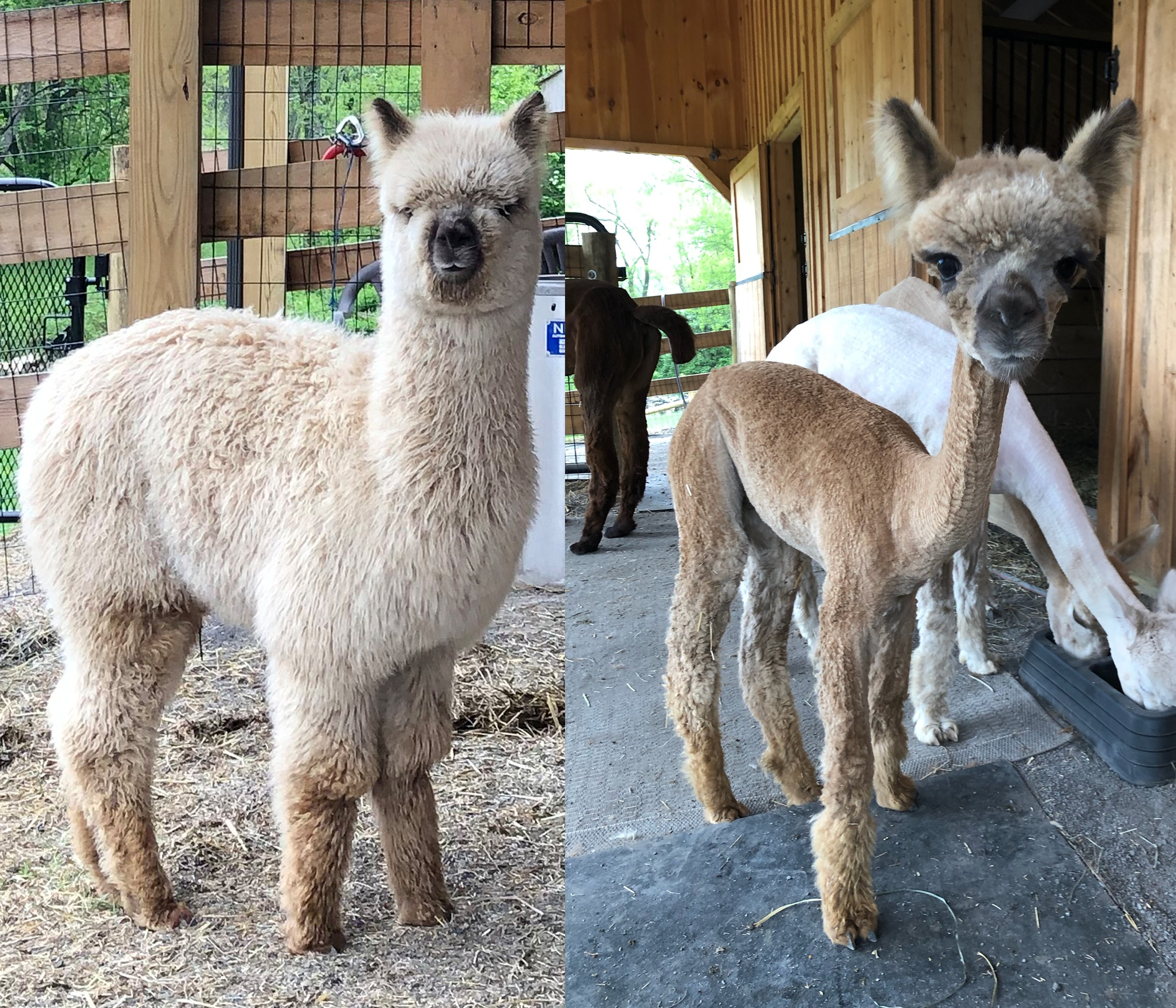Long ago, alpaca fiber was reserved for royalty.
Today, it is sold several ways. Hand-spinners and fiber artists buy raw fleece. Knitters often purchase alpaca yarn. Fiber cooperatives mills collect alpaca fiber and process it on behalf of the producer.
Alpacas are shorn, without harm, every twelve to eighteen months. An adult alpaca might produce 50 to 90 oz. of first-quality fiber as well as 50 to 100 oz. of second and third quality fiber. Some alpacas already achieve, or exceed, these levels.
BEFORE & AFTER SHARING

Because of its soft texture, alpaca fiber is sometimes compared to cashmere.
The fiber also has the luster of silk, making it even more coveted. Alpaca is just as warm as wool, yet it is a mere 1/3 the weight. It comes in 16 natural colors and can be dyed any desired shade.
Containing no lanolin, alpaca fiber is also naturally hypoallergenic. Most people who are sensitive to wool find that they can wear alpaca without the itching or irritation they feel from wool because alpaca fiber is smooth.
Additional performance characteristics include stretch, water repellency, and odor reduction. For travelers, clothing made from alpaca is desirable because it is wrinkle-resistant.
Today’s consumer searches for high-quality, environmentally sound products made of naturally renewable resources. The alpaca provides fiber, just as it has for thousands of years, to create colorful garments that are soft to the touch. Classically styled alpaca sweaters and suits can last for generations.
Alpaca fleece is known as the ‘super’ fiber for the following qualities:
- Strength per same fineness.
- Warmth per weight. Approx 3x the insulating capacity of sheep’s wool, so garments are VERY light and VERY warm.
- Hypoallergenic. Incidence of allergic reactions is dramatically lower than other fibers.
- Feel. Has no lanolin and very low “prickle factor” thus is softer, less irritating!
- There is less shrinkage and has a superior comfort, and superior comfort range.
- Yield – As soft and fine as cashmere. 7 – 10 lbs of fiber yearly yield vs a cashmere goat yield of 2-3lbs. alpaca will yield 10 lbs of fiber a year.
- Colors in herd. There are 23 recognized natural colors which accept both natural plant based and acid dyes.
Advantages over synthetic fiber:
- Superior breathability
- Wicks away body moisture, warm when wet
- Won’t mat or pill
- Naturally windproof
- Flame resistant
- Doesn’t melt
- Low static electricity
- Doesn’t hold debris
- Stain resistant
- Resists acquired odors
- Has a natural sheen
- All natural and biodegradable
There is simply nothing like Alpaca fleece! Try it to believe it.

